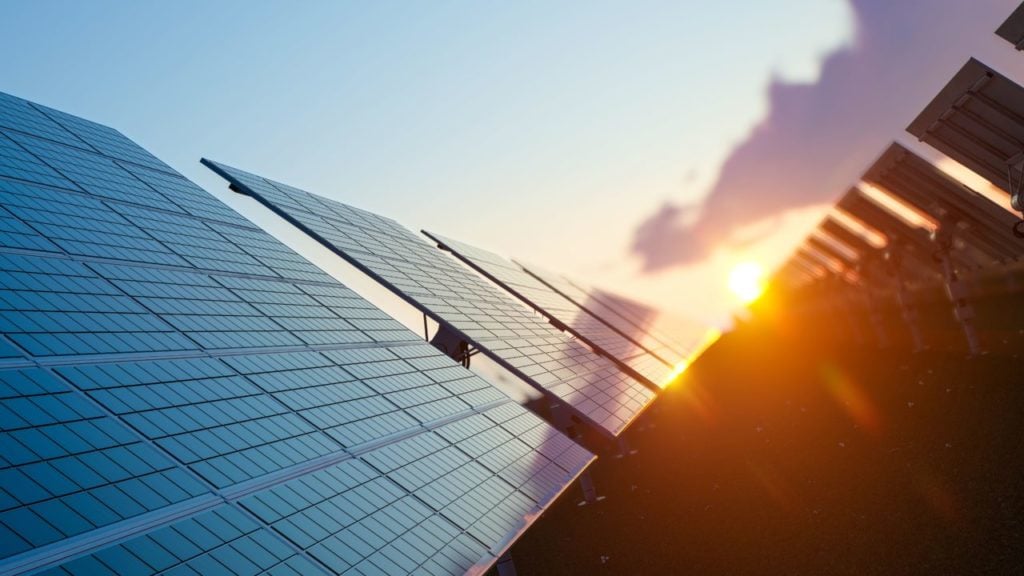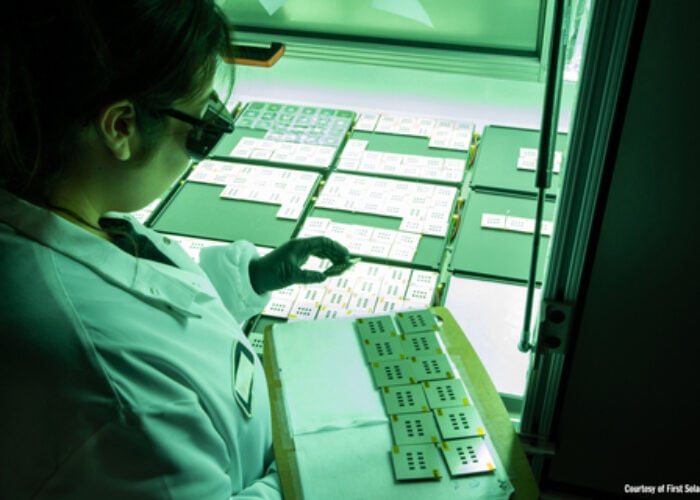
The Solar Stewardship Initiative (SSI) has released a Supply Chain Traceability Standard for solar manufacturers.
The standard aims to trace silicon from quartz mining to solar module production and implement management and broader environmental, social and governance (ESG) measures. It will assess specific manufacturing facilities from companies that have voluntarily signed up for assessment.
Try Premium for just $1
- Full premium access for the first month at only $1
- Converts to an annual rate after 30 days unless cancelled
- Cancel anytime during the trial period
Premium Benefits
- Expert industry analysis and interviews
- Digital access to PV Tech Power journal
- Exclusive event discounts
Or get the full Premium subscription right away
Or continue reading this article for free
The SSI was launched in 2022 by trade bodies SolarPower Europe and Solar Energy UK. The initiative has over 40 members across the solar industry, according to its website, including a number of major Chinese manufacturers and global solar power buyers. It already has a general ESG standard, published in October 2023. Companies whose operations meet SSI criteria can label their products as such.
Alexia Ruvoletto, head of the SSI Secretariat said: “The SSI Supply Chain Traceability Standard sets a new bar for end-to-end supply chain accountability in the solar sector. By establishing a clear, verifiable chain of custody for materials, it lays the groundwork for a more sustainable and ethical solar industry.”
The new standard requires that a compliant manufacturing facility source its materials from suppliers “with a traceability system meeting the requirements” of the SSI and must have a process in place “in the future” to source materials from “SSI certified suppliers.”
It also stipulates that a manufacturer must operate a “material accounting system” to track materials from the point they enter a facility until they leave as a final product. It must also record and reconcile the quantity of material entering and leaving the facility and account for any discrepancies.
The full SSI standard can be read here.
The burden of proof
Traceability has become a hot-button issue in the solar industry, particularly following 2021’s In Broad Daylight report from Sheffield Hallam University. The industry is still under the shadow of alleged exposure to forced labour in China’s Xinjiang Uyghur Autonomous Region (XUAR), where a significant portion of the world’s metallurgical grade silicon (MGS) and polysilicon has been produced.
The US’ Uyghur Forced Labor Prevention Act (UFLPA) has been a benchmark policy in tackling the issue as it requires companies shipping to the US to prove that their own supply chain is free from exposure to unethical labour practices, rather than relying on outside investigation into a notoriously opaque region of China. This process has become known as “reversing the burden of proof”.
The SSI standard says it has a global scope. It also said: “The final standard also makes clear that site certification remains impossible in regions inaccessible to unsupervised assessment.”
At a “trilogue” in February this year, members of the European Solar Manufacturing Council (ESMC) and Uyghur representative groups said that Europe would need to reverse the burden of proof if it was to impose effective traceability requirements on solar products entering its market.
This has yet to emerge. Beyond the SSI’s private standard, the EU has announced a forced labour ban which will come into effect in 2027. This will rely on investigations from the European Commission into companies and products outside the EU, rather than a US-style reversal.
Companies under the SSI standard would volunteer for investigation at specific manufacturing plants—at least two within 12 months of signing up to the scheme.
PV Tech Premium spoke with a lawyer in January this year about the “huge opportunity” that ESG compliance presents in the European solar industry.
Bifurcating production
The new SSI regulation also addresses material mixing – a practise that often occurs in polysilicon production, where product from multiple sources is combined into the same batch – and the use of outside third-party contractors at SSI-certified manufacturing sites.
It says: “Certified and non-certified material shall not be mixed if the facility wishes to make a claim about these certified products.”
It continues, saying that facilities must “identify each point at which there is an opportunity for the certified material in its custody to become mixed with non-eligible and/or non-certified material.”
It is unclear whether the standard would allow a single facility to produce both certified and non-certified products. This practice is broadly known as supply chain bifurcation, where a company operates separate production lines to meet different criteria. Critics say that bifurcation undermines efforts to ensure ethical solar supply, as companies can produce products which comply with US law, for example, while still producing unethical or carbon-intensive products for other markets.
Regarding outsourced contractors, the SSI standard says that a manufacturer must conduct its own investigations and risk assessments of its contractors. Only contractors considered “high-risk, for example, contractors that mix materials” would be subject to second- or third-party audits. It is unclear how the SSI would ensure that high-risk contractors are identified.
It said: “The facility shall maintain a list of all outsourced contractors and records of risk assessment conducted to be provided during the certification assessment against the SSI Supply Chain Traceability Standard.”






